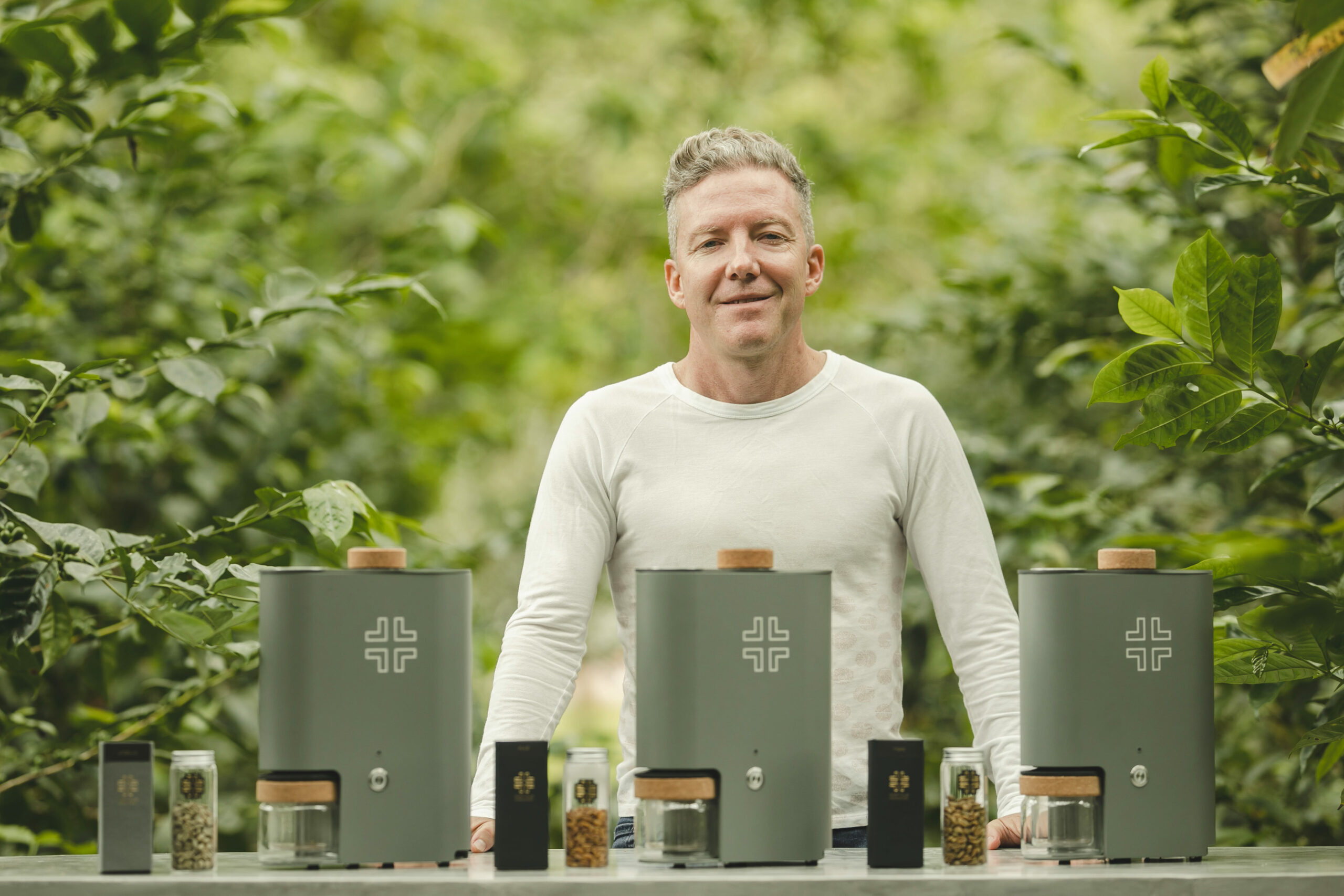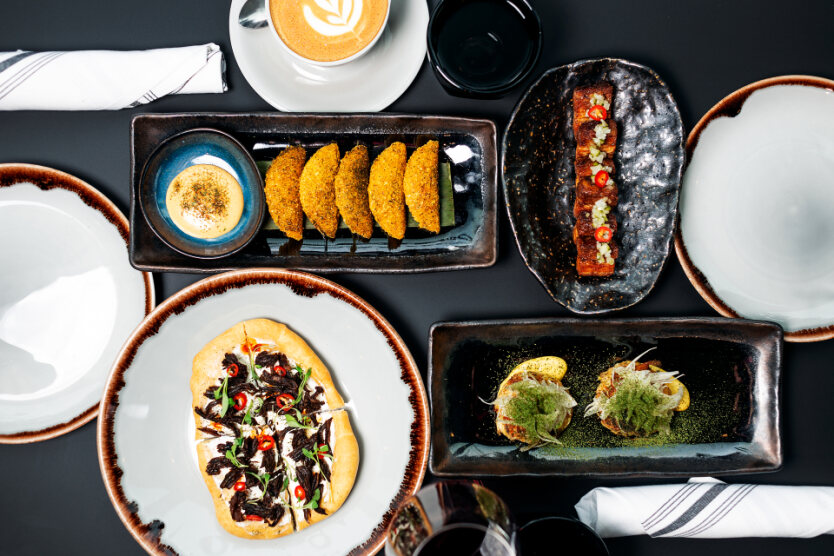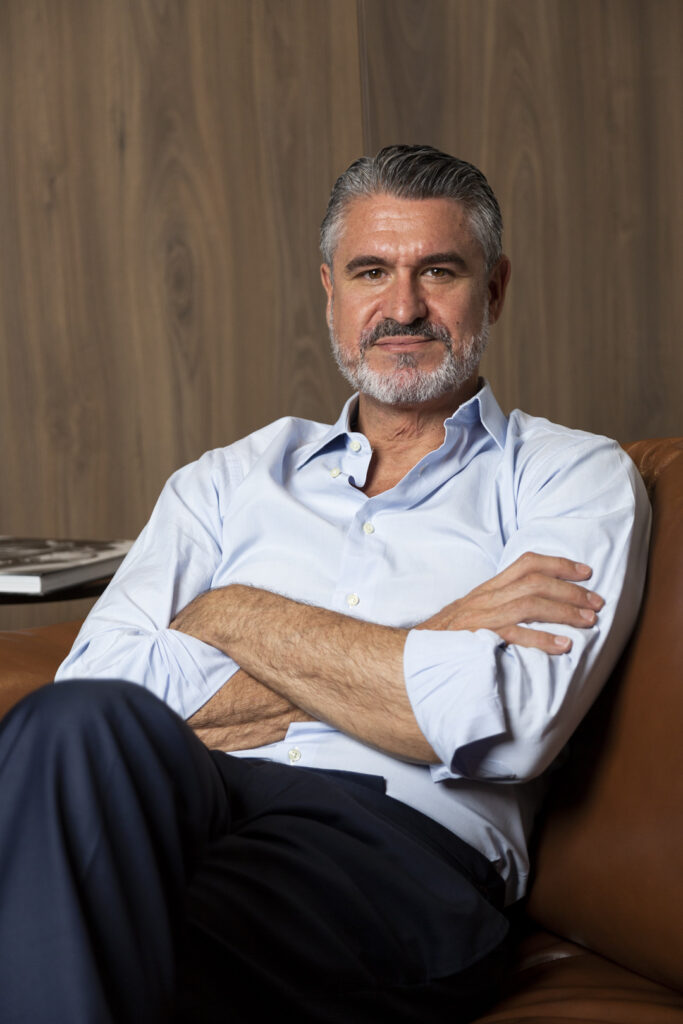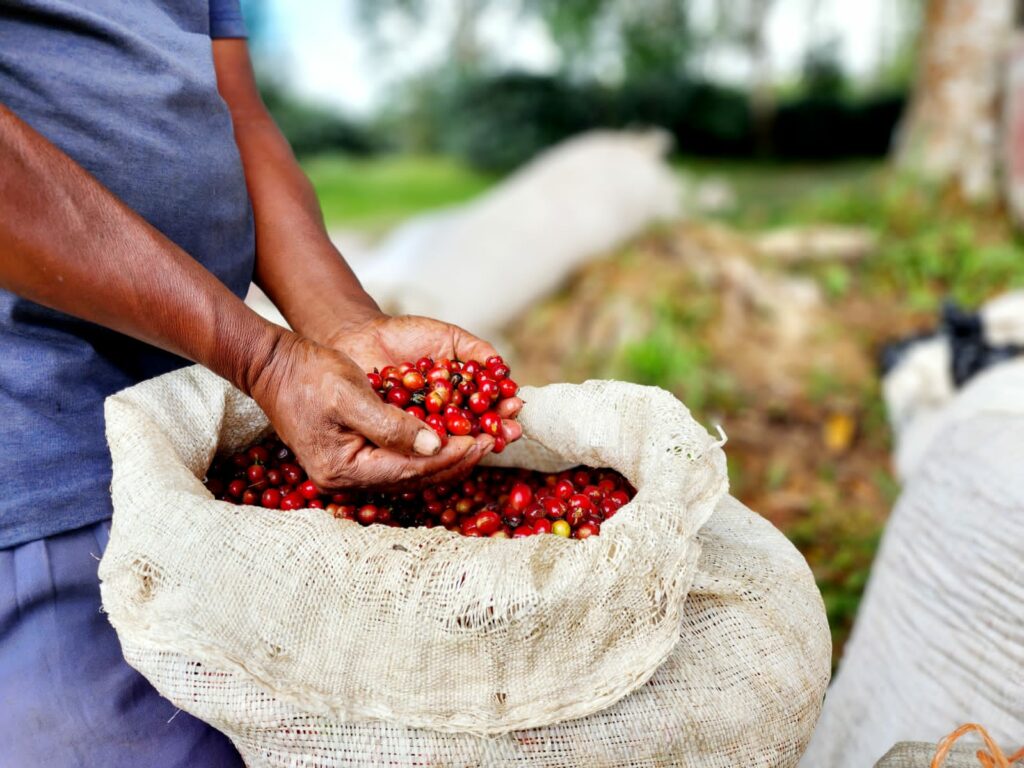Ninety Plus. In specialty coffee these two words have come to mean two things: an extremely high calibre and rare coffee as well as the brand built by Joseph Brodsky. As a coffee consumer, you might never have heard of them, because very few get to taste these coffees. They produce coffees of only a certain quality, the absolute highest quality. This didn’t happen overnight. This has been a twenty year journey that led to following this goal across continents and eventually settling in Volcán, Panama, along with enough heirloom coffee seedlings from Ethiopia to fill a couple hundred hectares of this prime volcanic soil and rebuilding the biodiversity in the area. Located on the Western slopes of the Barú volcano, these are the first and only places in the world where these varieties are grown under full canopy at this scale. Home to the cupping table with arguably the most beautiful view in the world, the team at Ninety Plus is also partial to brewing coffee in unusual places within their jungle playground from waterfalls to giant trees and jaguar bathing pools.
Ninety Plus Coffee quickly became the star of the coffee competition stage and the darling of connoisseurs who treat rare coffees like fine wines (as they should be treated). In fact after its first significant production in 2014, coffee from Ninety Plus Gesha Estates was used to win the first of 5 World Brewers Cup Championships they would go on to win over the following six years! We had the opportunity to speak with Joseph Brodsky, founder and visionary behind the brand.
Interview with Joseph Brodsky
When did you first discover your passion for coffee?
When I tasted great coffees from Ethiopia Yirgacheffe (lemon, jasmine) and Harar (blueberry) in 1998, I found that these coffees were like nothing I had ever tasted. I decided to specialize in sourcing these 2 coffees and sharing them under the brand I co-founded with family – Novo Coffee – in the year 2000.
Your sourcing journey began in Ethiopia, what lessons did you learn there? Particularly around lack of communication with the producers?
From 2000 until 2004, I sourced the Harar and Yirgacheffe from brokers throughout the US. Most coffees sampled were not special. It would normally have to try over 100 coffees before I would find one that contained the unique flavour and quality desired.
I travelled to Ethiopia for the first time in 2005 and began working directly with producers. Although communication was good and I had access to more coffees through this direct approach, the portion of coffees sampled that met my quality criteria was still very low.
So I moved to Ethiopia in 2006 and began hand-making coffees with producers and founded the Ninety Plus brand, aiming to create unique and great coffees by better separating coffee lots by variety and terroir and creating and controlling post-harvest protocols.
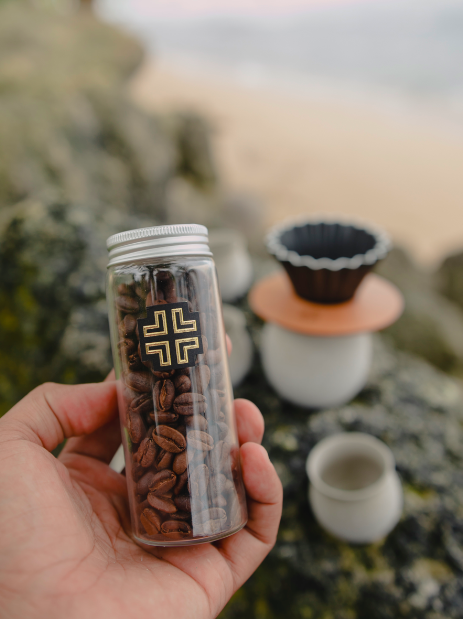
You almost exclusively grow Gesha coffee trees, tell us about the decision to be so razor-focused in this selection?
Gesha remains the leading variety in the world and the best raw material to produce nuanced taste. In addition, Gesha is among the heirloom Ethiopian varieties that thrives and produces its greatest quality when produced under forest canopy and has helped Ninety Plus increase biodiversity on hundreds of hectares in Panama.
And can you tell us a little about the other heirloom varietals and your recent Barú Estates project?
We have planted over 30 other heirloom Ethiopian varieties in Panama, primarily from the Ethiopia’s southwest. We are hopeful that one or more of these varieties will rival the flavor potential of Gesha. The results will be coming in over the next several years.
The Barú Estates project – based around an ancient volcanic crater and rising to nearly 2300 meters above sea level – is the closest coffee farm to the iconic Barú Volcano and is connected directly to more than 17,000 hectares of forest reserve rising to Panama’s highest summit (3474 m). It is planned to be the most ecologically integrated coffee farm in Panama (and, perhaps, the world), to be the site of the next level of coffee processing technology for NInety Plus, and to be the centre for coffee tourism and education at the highest level.
What makes Panama, specifically the coffee growing regions, so perfect for the Gesha varietal?
Gesha coffee feels very at home in Volcán, Panama, sharing similar latitude (8.7 degrees north) to Kaffa, Ethiopia (7.3 degrees north). The Volcán, Panama terroir also benefits from the altitude and volcanic soils around Volcán Barú.
How much time do you and the Ninety Plus team spend on site at the farm?
We, my family and I, along with our core team, have been living exclusively at at Ninety Plus Gesha Estates since 2017 (about 30 min drive from Ninety Plus Barú Estates).
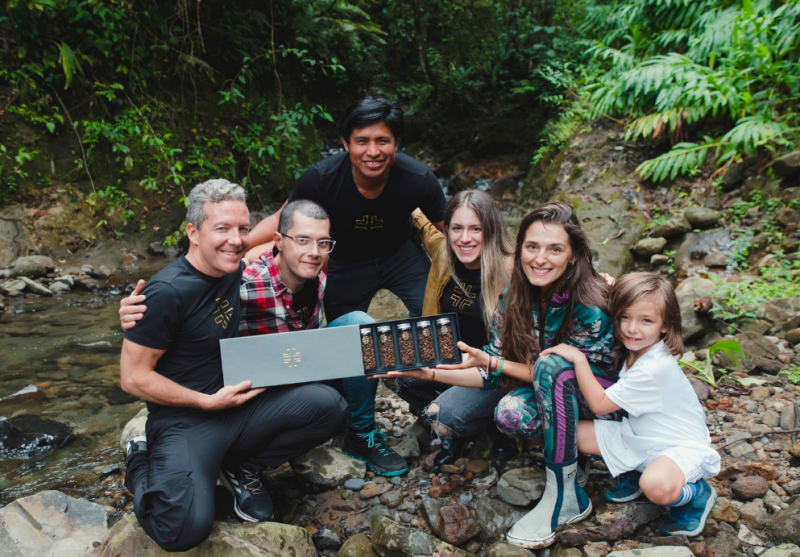
You were one of the pioneers of experimenting outside of traditional processing methods, what was the first method that stepped outside the lines? And how far have you come since then?
The first method to step outside the lines was really the traditional “natural process” coffees, dried on raised beds in Ethiopia. Although this method was already in use, it was employed primarily for early or late season coffees of inferior quality or in regions where water availability for “washed process” was insufficient (i.e. Harar). The first thing Ninety Plus did differently beginning in the 2006 harvest year was to perform “natural processing” on the best mid-harvest coffee cherries in several regions where natural processing for quality had previously been absent. At the time, natural process coffees were still quite controversial, many disqualifying their flavor as “fermented”, a word previously used by the industry primarily to describe defective coffees.
With great success through 2009 introducing highly traceable coffees of specific terroir and variety with improved natural processing, Ninety Plus began in 2010 to play with extended fermentation styles in Ethiopia and by 2012 was making hundreds of experimental batches with gesha in Panama, leading to coffees that would go on to win several World Coffee Championships.
Reforestation is at the core of what Ninety Plus aims to achieve, please may you tell us about this mission, and beside the benefits to the environment, what are the benefits for the coffees?
Coffees develop greater flavor density with the lower yields realized in heavy shade. We embrace these lower yields (and correspondingly higher costs/prices) in our mission to reforest land and increase biodiversity where our coffees are planted while maximizing quality.
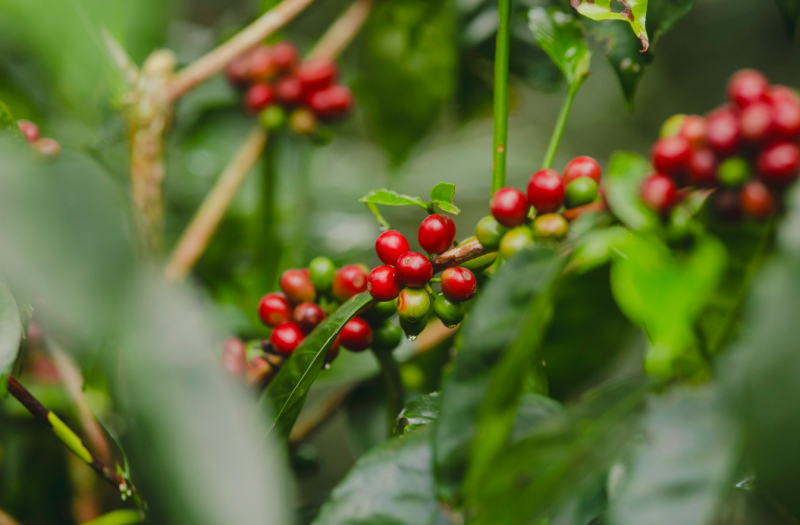
How did you come to learn so much about agronomy and what are the keys to building a forest that supports a successful ecosystem?
I was an ecology student at The Evergreen State College, where my home throughout my studies was a cabin in the rainforest near Olympia, WA. My educational background is more ecology and natural history than agronomy. I have always relied on good agronomic talent in the Ninety Plus team, a team directed to adapt traditional knowledge and charged with finding solutions which work for both coffee and nature. We do not have many fixed formulae for success, instead relying on incremental improvements in our practices that challenge convention and view our wilderness assets as the primary components of long-term value generation.
Tell us about the local communities and the impact Ninety Plus has had in this region?
The Ngäbe-Buglé indigenous people represent the majority of coffee workers in Panama. Traditionally viewed as a low-cost labour source in agriculture, we embrace the deep knowledge of nature still embedded in their culture and have created a long-term team of collaborators and leaders representing the Ngäbe-Buglé people. Our formula is simple: teach quality coffee production, respect all in our international team as equals, and to pay well for quality work. This has created loyalty from permanent and seasonal workers, who return every year and enjoy the Ninety Plus coffee work and has likely had an impact on how other farm owners in the coffee community value their people and their wild lands.
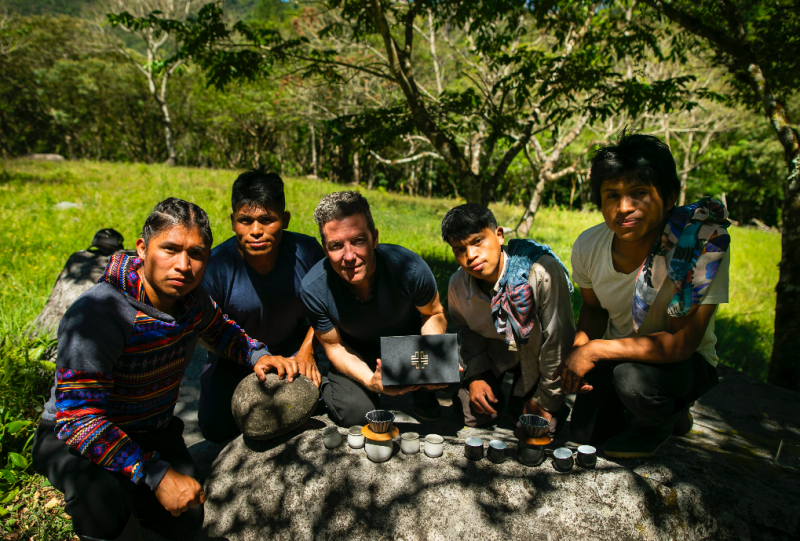
Has the culture changed in recent years since the demand for Panama Gesha has escalated? Are there lots of new players in the area? And what has this meant for the sustainability of the area?
There are many new players who have entered the Panama Gesha market as producers, mostly small. Although many have entered what they perceive as a “gesha gold rush”, the realities of high cost and added knowledge and labor required to attend to the shade-loving, delicate gesha trees equate to a need to charge a very high price to make this kind of farming sustainable. Still, sustainability in coffee farming is held back by intermediaries (roasters and trading companies) unwilling to pay the price per kilogram required for coffees at this level of quality and ecological integration. In order to pay the right price, intermediaries then have to pass along these price increases to their customers (prices that can easily be afforded by adding small amounts to the final consumer cup price). However, roasters and trading companies do not have much financial incentive to make the change, and the agent of change will likely have to be the producer, who will need to understand the supply chain through to the consumer and press for how much his or her coffee is worth per retail package/cup, then reverse engineer the pricing per kg to support this level of sustainable coffee production.
What is the craziest place you have ever brewed coffee?
At the top of a 100 meter waterfall clinging to a boulder in waist deep in currents that threatened to pull us over the edge.
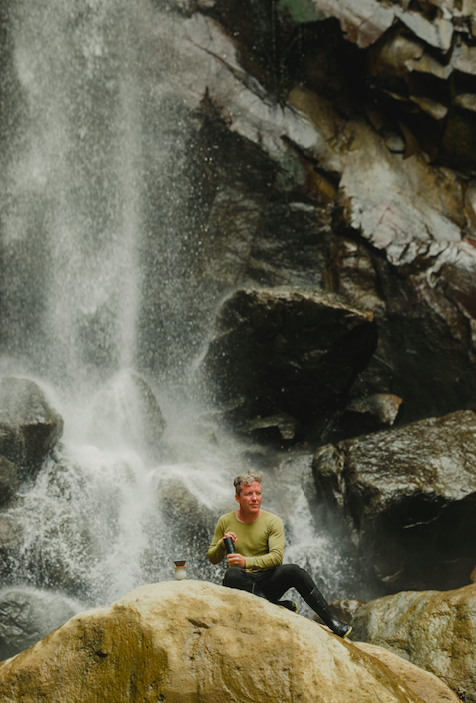
Not the crazy waterfall, a slightly less crazy waterfall coffee making experience 🙂
On a different note, Ninety Plus coffee sells mostly into the Japanese market, as a culture dedicated to elegance and tradition, this seems fitting. Have you spent much time in Japan?
We have spent a lot of time in Japan. We are lovers of Japanese people, nature, and culture and are very proud that Japanese coffees lovers continue to embrace Ninety Plus.
